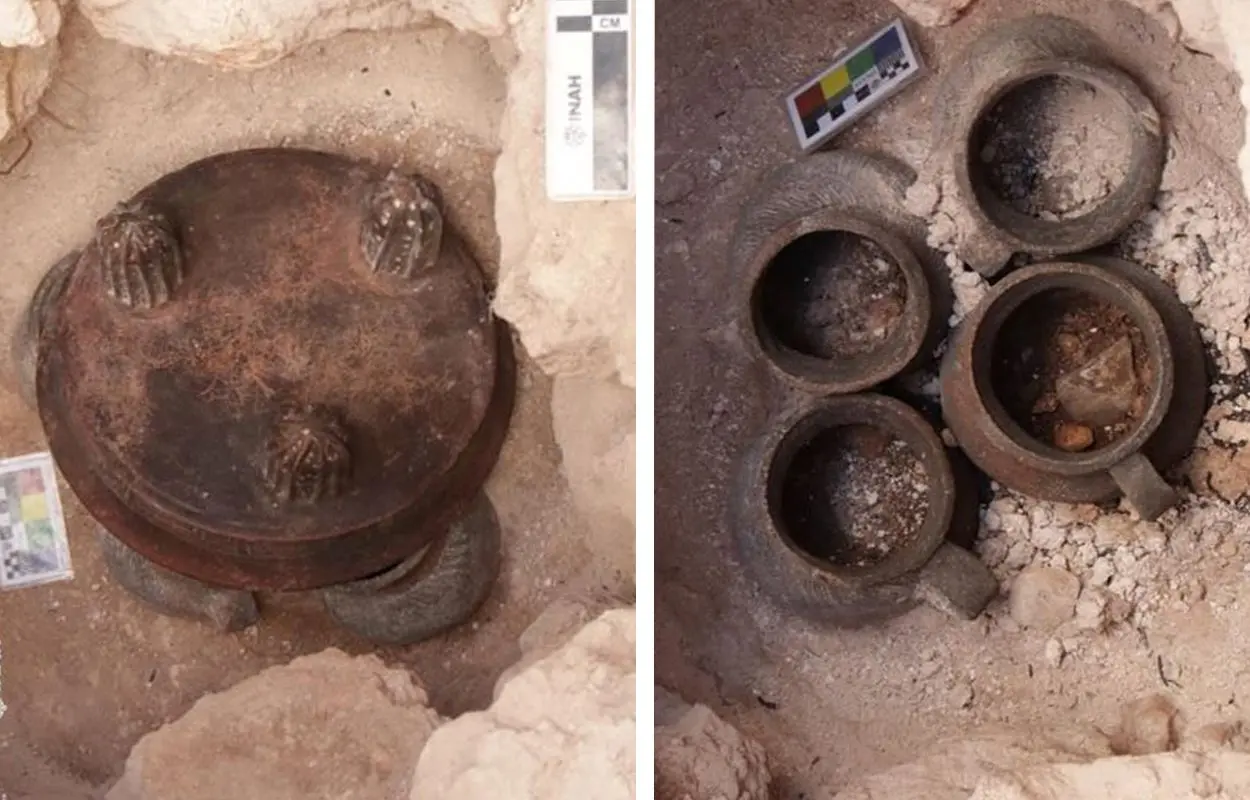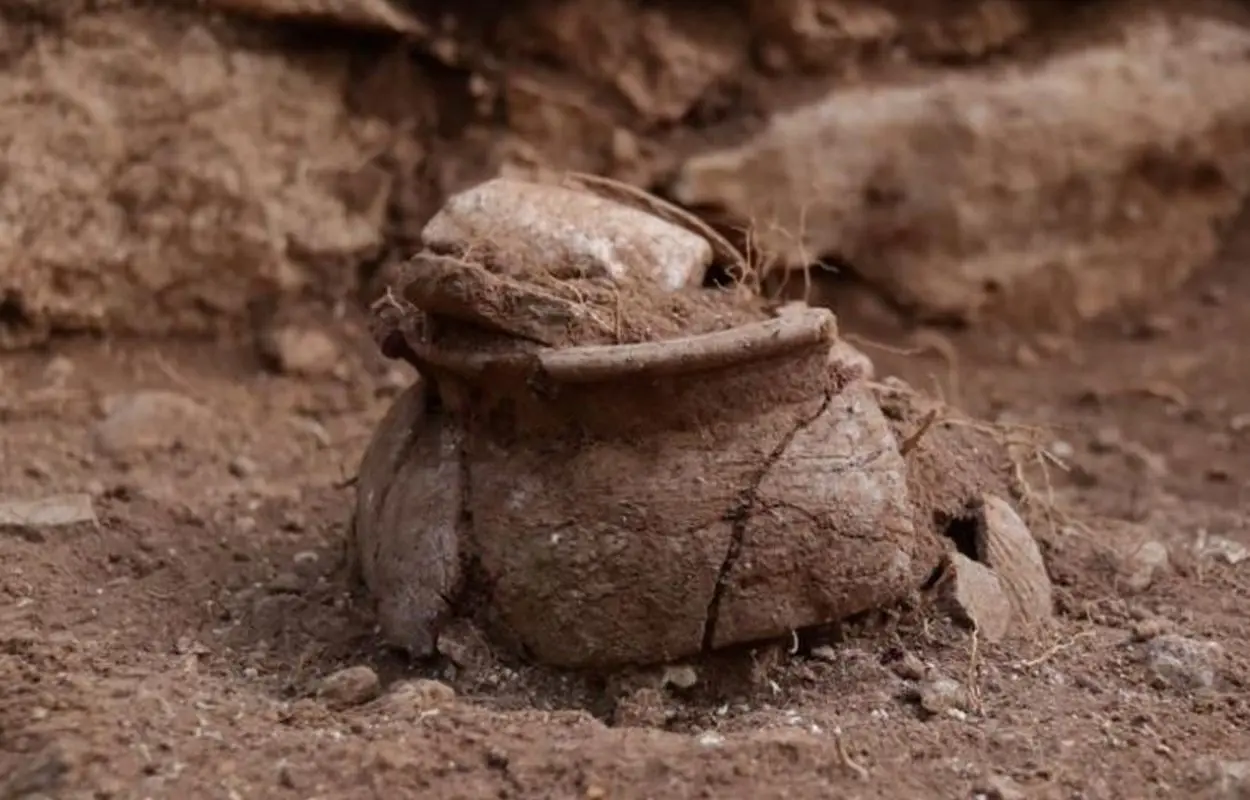Archaeologists from the National Institute of Anthropology and History (INAH) have discovered ritual offerings in the Maya city of Uxmal.
Uxmal was a Maya polity, located in the Puuc region of the eastern Yucatán Peninsula, Mexico. Most of the city’s major construction works took place while Uxmal was the capital of a Late Classic Maya state around AD 850 to 925.
The architectural features of Uxmal embody the distinctive Puuc style, characterised by smooth low walls that open on ornate friezes inspired by traditional Maya dwellings. These are represented by columns (symbolising the reeds used for the walls of the huts) and trapezoidal shapes (representing the thatched roofs).
Excavations have found ritual offerings from the Late Classic Period (AD 750 to 900) consisting of a tripod bowl and four vessels, where archaeologists recently discovered a stela depicting a god and a goddess that signified the duality between life and death.

The discovery was made in Structure 26 of the architectural group known as El Palomar (House of the Doves) during conservation works led by site archaeologist, José Huchim Herrera.
According to Herrera, the arrangement of the four vessels evokes the four corners of the universe and the four cardinal points, which contained a sacred liquid for the gods.
The vessels include a fluted pot with a short neck that corresponds to the Late Classic Period, while the remainder are from the Muna ware type from the Terminal Classic (AD 900 to 1100). The polychrome tripod bowl served as a container that may have symbolised the cosmos and the harmonic continuity of the universe.
The offerings have been removed to conduct micro-excavations to determine if they still contain any food residue or organic materials for dating when the offering was deposited.
Header Image Credit : Centro INAH Yucatán





